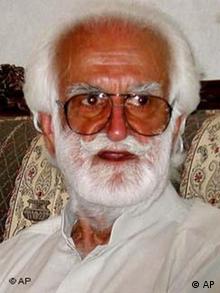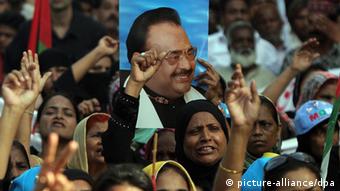[To understand the context of this post, please read At What Cost! Why Compute Economic Costs of Faulty Political Decisions]
Unfortunately in their false bravado and continually pumped up by their closed coterie of sycophant advisors , dictators threaten their opponents, and this becomes too much when they threaten the race. This may be a common happening in their academies or their cantonments when the recipients of this tirade are lowly cadets or JCOs (which is not even excusable there), but is absolutely intolerable when faced with a political uprising. Here we see the false bravado of two dictators whose threats had led to huge long term costs to the nation and its prestige over the world.
Genetic engineering’ in East Pakistan

Unfortunately in their false bravado and continually pumped up by their closed coterie of sycophant advisors , dictators threaten their opponents, and this becomes too much when they threaten the race. This may be a common happening in their academies or their cantonments when the recipients of this tirade are lowly cadets or JCOs (which is not even excusable there), but is absolutely intolerable when faced with a political uprising. Here we see the false bravado of two dictators whose threats had led to huge long term costs to the nation and its prestige over the world.
Genetic engineering’ in East Pakistan
https://tribune.com.pk/story/405014/genetic-engineering-in-east-pakistan/
By Khaled Ahmed
Published: July 7, 2012

By Khaled Ahmed
Published: July 7, 2012

Pakistan’s name has been blackened by just one man: General AAK ‘Tiger’ Niazi. According to a new book by Oxford University Press, he is supposed to have pronounced the words that even Genghis Khan would have hesitated to use: that he would let loose his soldiers on the women of East Pakistan till the lineage/ethnicity of the Bengali race was changed.
The account has come from a true son of Pakistan, late Major-General (retd) Khadim Hussain Raja in his recently published book A Stranger in My Own Country: East Pakistan, 1969-1971 (OUP, 2012). The book is posthumously published probably because it was a hot potato in the times it was actually written. He was General Officer Commanding 14 Division in East Pakistan.
General Ayub Khan, whose decade of rule caused the jurisprudence of separatism to evolve, gets the treatment he deserved through the testimony of another not-too-civilised general named Gul Hassan:
“Gul Hassan openly criticised Field Marshal Ayub Khan’s sons who, according to him, were letting their father down by amassing wealth by unfair means. Gul Hassan blurted out that ‘I have told the old cock that this time we will impose Martial Law and take control ourselves but not protect Ayub and his henchmen’. The reference [old cock] was to General Yahya Khan, Commander-in-Chief of the Pakistan Army” (p.8).
General Yahya Khan, who took over from Ayub was not what the doctor would have ordered for East Pakistan. The only leadership criterion was brutality riding on low IQ. The exception was General Yaqub Khan, the commander who insisted that General Yahya not postpone the session of the National Assembly elected after the 1970 election.
The author writes: “All of a sudden, General Yaqub Khan was bundled off as a student on the Imperial Defence College course. This clumsy and unceremonious action was obviously taken to get him out of the way” (p.7).
Commander East Pakistan, General Tikka Khan, disagreed with Raja that Sheikh Mujibur Rahman be secretly despatched to West Pakistan. He wanted to “publicly try Sheikh Mujib in Dhaka and hang him” (p.93).
Major-General Rahim Khan was the other officer Pakistan can’t be proud of: “Rahim started to criticise the senior commanders in Dhaka, especially me, although I happened to be a friend of his. He was of the opinion that the Bengalis were timid people and should have been subdued long ago. The reader can judge for himself the ignorance and lack of understanding of the East Pakistan situation among the hawks in the armed forces” (p.97). Rahim ran away from East Pakistan when things became too hot.
We come to the climax: “[Enter] Commander East Pakistan General Niazi, wearing a pistol holster on his web belt. Niazi became abusive and started raving. Breaking into Urdu, he said: Main iss haramzadi qaum ki nasal badal doon ga. Yeh mujhe kiya samajhtey hain. He threatened that he would let his soldiers loose on their womenfolk. There was pin drop silence at these remarks. The next morning, we were given the sad news. A Bengali officer Major Mushtaq went into a bathroom at the Command Headquarters and shot himself in the head” (p.98).
Niazi also asked Raja for phone numbers of his Bengali girlfriends: “Abhi tau mujhey Bengali girlfriends kay phone number day do” (p.99). Niazi surrendered to Indian General JFR Jacob in 1971. ‘Tiger’ Niazi handed over his personal pistol at the famous Race Course ceremony. Jacob examined the weapon: the lanyard was greasy and frayed, and the pistol was full of muck as if it hadn’t been cleaned in a long while. (Surrender at Dacca: Birth of a Nation; by Lt. Gen JFR Jacob; Manohar Publishers 1997).
Published in The Express Tribune, July 8th, 2012.
'Traitors' and 'villains' - Has Islamabad learnt anything from Bugti's killing?
Ten years since the killing of Baloch separatist Akbar Bugti, Islamabad continues its confrontational approach with the leaders of ethnic groups, calling them "traitors." Experts say it doesn't bode well for the country.
"Don't push us. It is not the 1970s when you can hit and run and hide in the mountains. This time you won't even know what hit you." Former Pakistani president and military chief Pervez Musharraf made these remarks in 2006 as a warning to Baloch separatists and their leader Nawab Akbar Bugti. Soon after, the general came down hard on the separatists and Bugti was killed in a military operation. Baloch nationalists claim that Bugti - who had been hiding in a mountain - was hit by a military rocket, an accusation Musharraf and the country's army denies.
Ten years after Bugti's assassination, the Pakistani army continues to target rebels in the western Balochistan province. Musharraf's wish that the Baloch separatist movement would die with Bugti's killing hasn't come true yet. On the contrary, the Balochistan conflict has received more international attention in the past few years.
As Baloch separatists commemorate Bugti's tenth death anniversary on Friday, August 26, Islamabad accuses the rebels of receiving support from India. Recently, Indian Premier Narendra Modi referred to Pakistani oppression in the Balochistan province.

Akbar Bugti remained close to Islamabd until the military operation in 2005
Decades-long insurgency
Balochistan, which borders Iran and Afghanistan, remains Pakistan's poorest and least populous province despite a number of development projects Islamabad has initiated there in the past. Rebel groups have waged a separatist insurgency in the province for decades, complaining that the central government in Islamabad and the richer Punjab province unfairly exploit their resources. Islamabad reacted to the insurgency by launching a military operation in the province in 2005.
The armed struggle for Baloch independence intensified after Bugti's killing in 2006. Rebel Baloch groups like the Balochistan Liberation Army have repeatedly attacked security forces and state installations. Most of the rebel leadership is thought to be abroad in the UK, Afghanistan and Dubai.
Local rights groups have the details of thousands of people who they say have disappeared over the past ten years and have not been seen since. Pakistani security agencies claim these people were arrested on terrorism charges. However, the whereabouts of these people are kept secret from the public; they have not been presented to local courts for a proper trial.
Exploitation of economic resources?
Last year, China announced an economic project in Pakistan worth $46 billion (about 41 billion euro). With the China-Pakistan Economic Corridor (CPEC), Beijing aims to expand its influence in Pakistan and across Central and South Asia in order to counter US and Indian influence. The CPEC would link Pakistan's southern Gwadar port on the Arabian Sea to China's western Xinjiang region. It also includes plans to create road, rail and oil pipeline links to improve connectivity between China and the Middle East.
Pakistan is grappling with an acute economic crisis. Experts say the CPEC can certainly stir the much-needed economic activity in the country.
But the much-vaunted CPEC has not impressed residents of Gwadar and Balochistan who believe they should be the main stakeholders of development projects in their port city.
"Just look at the condition of our roads, our homes and towns; we still lack basic necessities of life," Farhad Baloch, a Gwadar resident, told DW. "Even drinking water is a rare commodity in the area. We are facing a drought-like situation," he added.
K. B. Firaq, president of the Gwadar Educational Welfare Society, complains that the locals are being driven out of the city's port area to make way for Chinese workers and engineers. "The Gwadar fishermen are not allowed near the port boundaries. Thousands of fishermen have been asked to leave the harbor," Firaq claimed.
Senator Mushahid Ullah Khan, leader of the ruling Pakistan Muslim League party, admits that the people of Balochistan are unhappy with some of the government's policies, but he denies that Islamabad is usurping the province's economic resources.
"Prime Minister Nawaz Sharif's government allowed a Baloch nationalist to become the chief minister of the province. Our administration has also launched a number of development projects for the benefit of the locals," Senator Khan told DW.
But nationalist leader Abdul Hai Baloch is skeptical about the government's claims, as he says the issue is more political than economic. He believes the Gwadar residents resent the CPEC project because they fear that with the arrival of workers from China and Pakistan's other provinces, they will soon become a minority in their own town.
Dr. Abdul Aziz, a Gwadar resident, echoes Hai Baloch's sentiments. "Our resources are being plundered, and we are being deprived of our livelihood. Many people had to move to remote areas after the government started the construction work on Gwadar port," he said, adding that non-locals were already buying land in the city. "More dislocations are on the horizon."
"We should be the masters of our resources, but we are being treated like slaves. This will have catastrophic consequences," he continued.
Last year, in an interview with DW, Brahamdagh Bugti, leader of the Baloch Republican Party living in exile in Switzerland, and grandson of slain nationalist leader Nawab Akbar Bugti, criticized Islamabad's development policies for Balochistan.
"None of the previous development projects in Balochistan have ever been beneficial to the province or its people," Bugti told DW. "We have been complaining for decades that Islamabad has never sought the consent of the Baloch people before initiating these projects. It is quite obvious that they are not launched to boost the province's economy or to help people out of poverty. They are started for the benefit of the rulers in Islamabad," he added.
New 'traitors'
Ten years ago, Islamabad declared Akbar Bugti a "terrorist" and a "traitor." Experts say that a majority of Baloch leaders are still not trusted by the army and the politicians in Islamabad. In fact, the central government and the military are bent on pushing more nationalist leaders against the wall, analysts say.
Recently, the Muttahida Qaumi Movement (MQM), a southern Sindh province-based political party, came under direct conflict with the Pakistani authorities when its exiled leader Altaf Hussain criticized the army and government officials of systematically targeting his workers.
Hussain, who has been living in self-imposed exile since the early 1990s, also called Pakistan "the epicenter of terrorism." The politician warned the authorities that his followers would choose not to be loyal to the country if the "extrajudicial killings" of his activists continued.
Like Baloch leader Akbar Bugti, Hussain has so far chosen to remain close to Islamabad, but the government's actions against him are forcing him to turn against the state.
Some analysts say that instead of resolving the conflicts and paying attention to the grievances of the country's smaller provinces and ethnic groups, Islamabad continues to use force against them, which shows that the military and the civilian establishment haven't learnt much from their past mistakes. It is the same "you won't even know what hit you" paradigm all over again.
Additional reporting by Sattar Khan, DW's Islamabad correspondent.




No comments:
Post a Comment